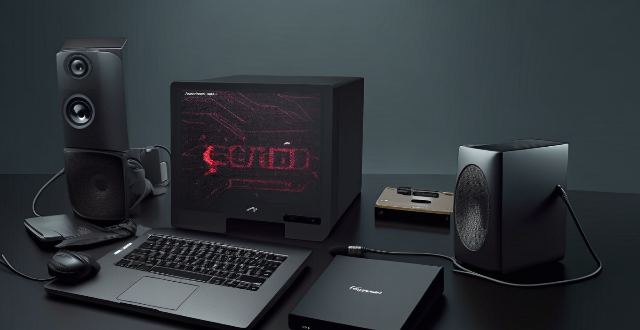The text discusses the necessity of sound cards for modern computers, considering the evolution of audio technology and integrated solutions. It outlines advantages such as higher quality audio and advanced features, but also mentions potential disadvantages like cost and compatibility issues. The conclusion suggests that while dedicated sound cards may be beneficial for certain users, they are not essential for everyday tasks on most modern computers.

Are Sound Cards Still Necessary for Modern Computers?
Sound cards were once an essential component of personal computers, providing audio input and output capabilities. However, with the advancement of technology, many modern computers come equipped with built-in audio solutions that are capable of handling most audio needs. This raises the question: are sound cards still necessary for modern computers?
The Evolution of Audio in Computers
In the early days of personal computing, sound cards were required to produce any kind of audio output from a computer. They provided the necessary hardware to convert digital signals into analog signals that could be played through speakers or headphones. Over time, as technology progressed, sound cards became more sophisticated, offering higher quality audio and additional features such as MIDI support and advanced sound processing.
However, as integrated circuits became more powerful and miniaturized, it became possible to include basic audio capabilities directly on the motherboard. This led to the development of onboard audio solutions, which are now standard on most modern motherboards. These onboard audio solutions are often sufficient for everyday tasks such as listening to music, watching videos, and making voice calls over the internet.
Advantages of Sound Cards
Despite the prevalence of onboard audio solutions, there are still several advantages to using a dedicated sound card:
Higher Quality Audio
Sound cards often offer higher quality audio than onboard solutions due to better components and circuit design. This can be important for audio professionals who require accurate and clean sound reproduction.
Advanced Features
Many sound cards come with advanced features such as multiple input/output ports, support for high-resolution audio formats, and specialized audio processing capabilities. These features can be useful for musicians, audio engineers, and gamers who require more control over their audio setup.
Upgradability
Unlike onboard audio solutions, sound cards can be easily upgraded or replaced without having to replace the entire motherboard. This allows users to keep up with the latest audio technology without having to invest in a new computer.
Disadvantages of Sound Cards
While there are several advantages to using a dedicated sound card, there are also some potential disadvantages:
Cost
Dedicated sound cards can be expensive, especially those designed for professional use. For casual users who only need basic audio capabilities, this added expense may not be justified.
Compatibility Issues
Some older sound cards may not be compatible with modern operating systems or software applications. This can lead to compatibility issues and driver problems.
Space Requirements
Dedicated sound cards require additional space inside the computer case, which can be a concern for users with smaller cases or limited space.
Conclusion
So, are sound cards still necessary for modern computers? The answer depends on your specific needs and preferences. If you require high-quality audio or advanced audio features, a dedicated sound card may be worth considering. However, for most casual users, the built-in audio solutions provided by modern motherboards should be sufficient for everyday use.